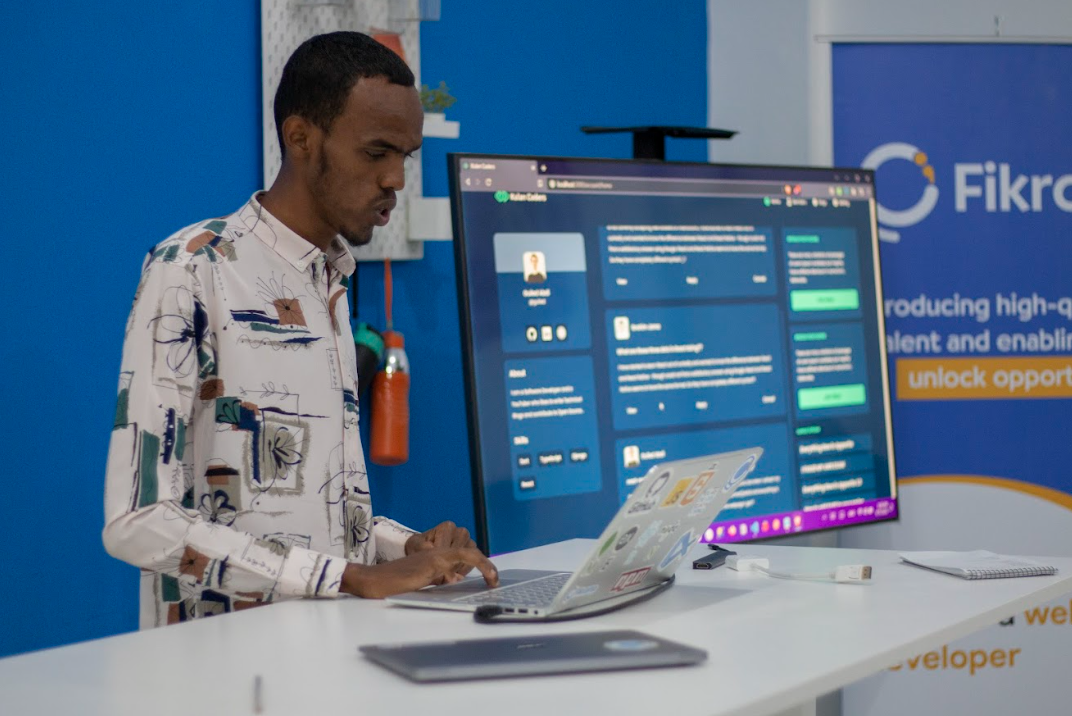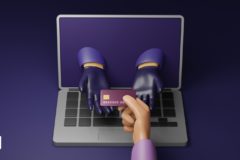Based in Hargeisa, Fikrcamp was launched in Somaliland and targeted Somali-speaking people. Although it has raised only $40,000, it has already arrived in Ethiopia to impart digital skills to Amharic-speaking students.
Coding bootcamps in Africa are growing, offering intensive, short-term tech education. They empower aspiring developers with practical skills in programming, web development, and more. These programs help bridge the digital skills gap and support Africa’s growing tech ecosystem, opening doors to exciting career opportunities. Some of these programs take a different approach to offering coding training, such as targeting a specific group of people. That’s the case of Fikrcamp’s bootcamp, a custom program designed to meet the unique needs of young people who speak Somali as they embark on their journey into the digital economy. TechCabal had a chat with Ridwan Tukale, co-founder and director of product and operations at Fikrcamp.
Fikrcamp has raised $40,000 so far
Launched in February 2021, Fikrcamp has made some strides in a relatively short time. The initial cohort onboarded 16 students, and from that group, 10 successfully graduated. A total of 186 students have participated over seven cohorts. Tukale said 117 students had secured employment through internships or full-time positions. So far, Fikrcamp has raised $40,000 in funding, with a total revenue of $36,800. These funds provide an eight-month runway for the organisation. Fikrcamp aims to reach 500 Somali-speaking and 7,500 Amharic-speaking students in Ethiopia within three years.
“After several successful years of empowering Somali-speaking youth with essential digital skills, we can proudly say that we’ve mastered the art of teaching. Our track record of helping students become job-ready speaks for itself,” Tukale told TechCabal. “We are excited to take our proven model to Ethiopia and replicate our success there. Our goal is to scale our operations, increase student enrollments, and continue significantly impacting Africa’s tech education landscape.”
Fikrcamp charges tuition fees to cover instruction, materials, and resources. It further provides scholarships and financial aid, funded by the bootcamp or partners, based on need or merit. Employer partnerships often lead to tuition coverage for employees or sponsorships for skilled candidates. The bootcamp generates revenue through customised corporate training programs for businesses and organisations.
How does Fikrcamp Bootcamp address the unique challenges and opportunities Somali-speaking youth face in their journey to enter the digital economy?
RT: Fikrcamp understands the local context and the specific challenges that Somali-speaking youth encounter. Offering courses in the Somali language ensures that the content is accessible and culturally relevant, making it easier for students to grasp complex concepts.
With the expansion into Ethiopia and the introduction of courses in Amharic, Fikrcamp ensures that its model is adaptable to different regions and languages, further extending its impact.
Could you elaborate on the strategies and teaching methods Fikrcamp Bootcamp employs to ensure student skill mastery and how these methods contribute to their success in the digital space?
RT: Fikrcamp places a strong emphasis on project-based learning. Students work on real-world projects throughout the bootcamp, allowing them to apply the skills they learn in practical scenarios. This hands-on experience reinforces their understanding and builds a portfolio of work that demonstrates their abilities to potential employers. In addition to technical skills, Fikrcamp recognises the importance of soft skills. Students receive training in communication, problem-solving, and critical thinking, which are essential for success in the digital space.

As Fikrcamp Bootcamp expands its reach to Amharic-speaking audiences in Ethiopia, how does the program adapt to a new region’s cultural and linguistic nuances while maintaining its core mission and effectiveness?
RT: Expanding into new regions with different cultural and linguistic nuances is complex, but Fikrcamp Bootcamp is committed to maintaining its core mission and effectiveness while adapting to these changes. Fikrcamp recognises the importance of cultural sensitivity and respect for local customs and values. Before launching in a new region, the team conducts thorough research and collaborates with local experts to understand the cultural nuances. This ensures the program is culturally relevant and respectful of the local context. One of our partners is from Addis Ababa is based there, and has facilitated the most market research.
In a rapidly evolving tech landscape, how does Fikrcamp Bootcamp ensure that the digital skills it imparts remain relevant and up to date for its graduates, considering the constantly changing demands of the tech job market?
RT: Fikrcamp conducts regular and systematic reviews of its curriculum. This includes ongoing evaluations of industry trends, emerging technologies, and job market demands. This proactive approach ensures the curriculum stays aligned with the evolving tech landscape. We also maintain strong partnerships with employers in the tech sector. This enables the bootcamp to gain insights into the specific skills that employers are seeking. It also provides opportunities for internships and job placements for graduates.
Besides skill acquisition, how does Fikrcamp Bootcamp foster a sense of empowerment and agency among its students, enabling them to contribute to the digital economy and drive positive change within their communities?
RT: Fikrcamp encourages entrepreneurial thinking and supports students interested in starting tech-related businesses. This empowers students to create job opportunities and become leaders in the digital economy.
Can you provide examples of success stories or real-world impact following Fikrcamp Bootcamp’s initiatives, showcasing how its graduates have leveraged their skills to create meaningful change or establish themselves in the competitive tech industry?
RT: Fikrcamp’s commitment to job placement support has resulted in many graduates securing positions with local and international tech companies. Their success in landing these roles demonstrates the effectiveness of the bootcamp in preparing job-ready professionals. The students from our 7 cohorts so far have a rate of 63% of employment after graduation.
“At Fikrcamp, our commitment is unwavering. We believe in the transformative power of education and the incredible potential of Somali-speaking youth. Our mission is to provide them with the digital skills and opportunities they need to thrive in a rapidly evolving world. Every day, we are inspired by our students’ dedication and resilience and dedicated to their success,” Abdulladif Roble, co-founder, director & lead instructor.
Have you got your tickets to TechCabal’s Moonshot Conference? Click here to do so now!






















